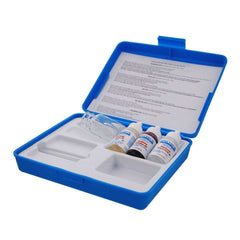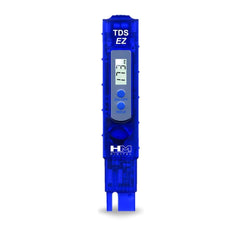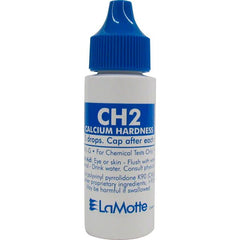What's In Your Water?
Quality Water Test Kits

Testing is Important
Why Test My Water?

Getting your home water tested is important for several reasons:
- Health and Safety:
Testing your home water supply helps ensure that it is safe for consumption and daily use. It can detect harmful contaminants such as bacteria, viruses, heavy metals (e.g., lead, arsenic), pesticides, and other pollutants that can pose health risks if consumed or absorbed through the skin. - ProperTreatment Solutions:
If issues are detected, water testing can help determine the appropriate treatment solutions, such as water softeners, filtration systems, or disinfection methods, to improve water quality. - Well Water Testing:
If you rely on a private well for your water supply, regular testing is crucial. Well water is not typically regulated by municipal authorities, so homeowners are responsible for ensuring its safety and quality.
- Environmental Concerns:
Testing your water can help identify pollutants that may be harmful to the environment if your water is discharged into the sewer or local waterways. It's essential to be a responsible steward of the environment. - Peace of Mind:
Knowing that your water is safe and free from contaminants can provide peace of mind for you and your family. It can alleviate concerns about potential health risks associated with drinking or using the water. - Early Detection:
Regular testing allows for the early detection of water quality problems, making it easier and less costly to address issues before they become severe.

Overall, water testing is an essential step in maintaining a healthy and safe home environment.
The frequency of testing may vary depending on your location, water source, and specific concerns.
Overall, it is a good practice to have your water tested periodically, especially if you notice changes in taste, odor, or appearance of your water, or if there are known water quality issues in your area.
PRODUCT & TECHNICAL SUPPORT
Real Experts That You Can Count On


Steer clear of the guessing game.
You are investing your hard earned money into a solution to provide quality water for your family.
We cut through the clutter for you to make the right decisions.
Unlike the big box stores…
Our team of experts recommend the best solutions that’s available in the entire marketplace.
Our water treatment consultants help you before AND after your purchase.
Our customers are like family.
PROPER FILTER SIZING
What Filter Size?
In general, match your effective well pump flow rate to the backwash requirements to select the appropriate filter size.
Typical size is the 1.5 CUFT size, if your well pump can accommodate. An option is that you can also select a smaller size, if higher flow rates are not required.
NOTE: Minimum Well Pump Flow Rates Are Required. See Specs below or try our WISDOM tool.
WATER INTELLIGENCE ENGINE

Try The Free Sizing Calculator
...Well Pump Flow Rate Is Needed
USE WISDOM NOWMeasure Your WELL PUMP FLOW RATE
Check your well pump's effective flow rate... Easy as 1, 2, 3...

Minimum Water Flow Rate Required:
The size of an iron filter or pH neutralizer system is dependent on the flow rate from your well pump.
Please check your flow rate to select the properly sized system.
Do not select a system that requires a higher flow rate.
WHY BUY FROM US
Real Experts. Real Value.
























